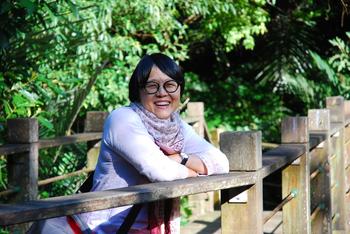Dr. Jun Zhang

Fellow in the project "Social Worlds: China's Cities as Spaces of Worldmaking" (June-August 2023)
Short Biography
Jun ZHANG was trained as a socio-cultural anthropologist with a regional focus on China. With an interdisciplinary approach in her research, Zhang is interested in social transformation, particularly the gap, ambiguity, contradictions, and interactions between the grand narratives and mundane practices. Her research projects follow two paths. With the first path, she follows her urban middle-class interlocutors to explore a wide range of topics from family making and class making to ethical negotiation and digital culture. Zhang’s second path follows a material culture approach through which she examines the usage of material objects in everyday lives such as cars, bicycles, and smartphones as well as the built environment such as streets, parks, and bridges. She is the author of “Driving Toward Modernity. Cars and the Lives of the Middle Class in Contemporary China” (Cornell University Press, 2019) and multiple articles in journals such as Modern China, Journal of Contemporary Asia and Mobilities.
Project
An Ethnographic Exploration of Public Space in Urban ChinaThis project is an anthropological-historical inquiry on public space in the context of urbanization and modernization in Chinese cities. Discussions regarding public spaces invoke specific intellectual genealogies and spatial-political cultures that have been shaped by, and have shaped, the modernization and urbanization processes of European and other western societies since modern times. However, public and public space often do not carry the same connotations when they are used in China in the past and the present. While public space has been continuously playing an important role in governmental practices and everyday life in Chinese cities, not enough attention has been given to the ambiguities and contradictions in the perceptions and usage of public space.
Such ambiguities in different dimensions have caught my attention over my long-term fieldwork in and archival research on the city of Guangzhou. The project I pursue during the visiting fellowship period seeks to explore ethnographically such ambiguities and uncertainties regarding the perceptions and usage of public spaces in everyday settings. My exploration will draw the empirical case studies I have done over the years—from parental matching making, plaza dancing and choral singing in public parks to shared bicycles and privately owned cars parked in streets. It will focus on how ordinary citizens’ perceptions about public space changes situationally, how boundaries between the public and the private are negotiated and articulated, and how these articulations, practices, and negotiation have been shaped in specific discursive, social and political forces. By unravelling how public space has been introduced, made thinkable, usable, governable, and negotiable in Chinese cities, this project shows the complexities in knowledge translation, infrastructural politics, and governing challenges as Chinese cities have engaged in global flows of ideas and practices in their pursuit of development and modernization.
